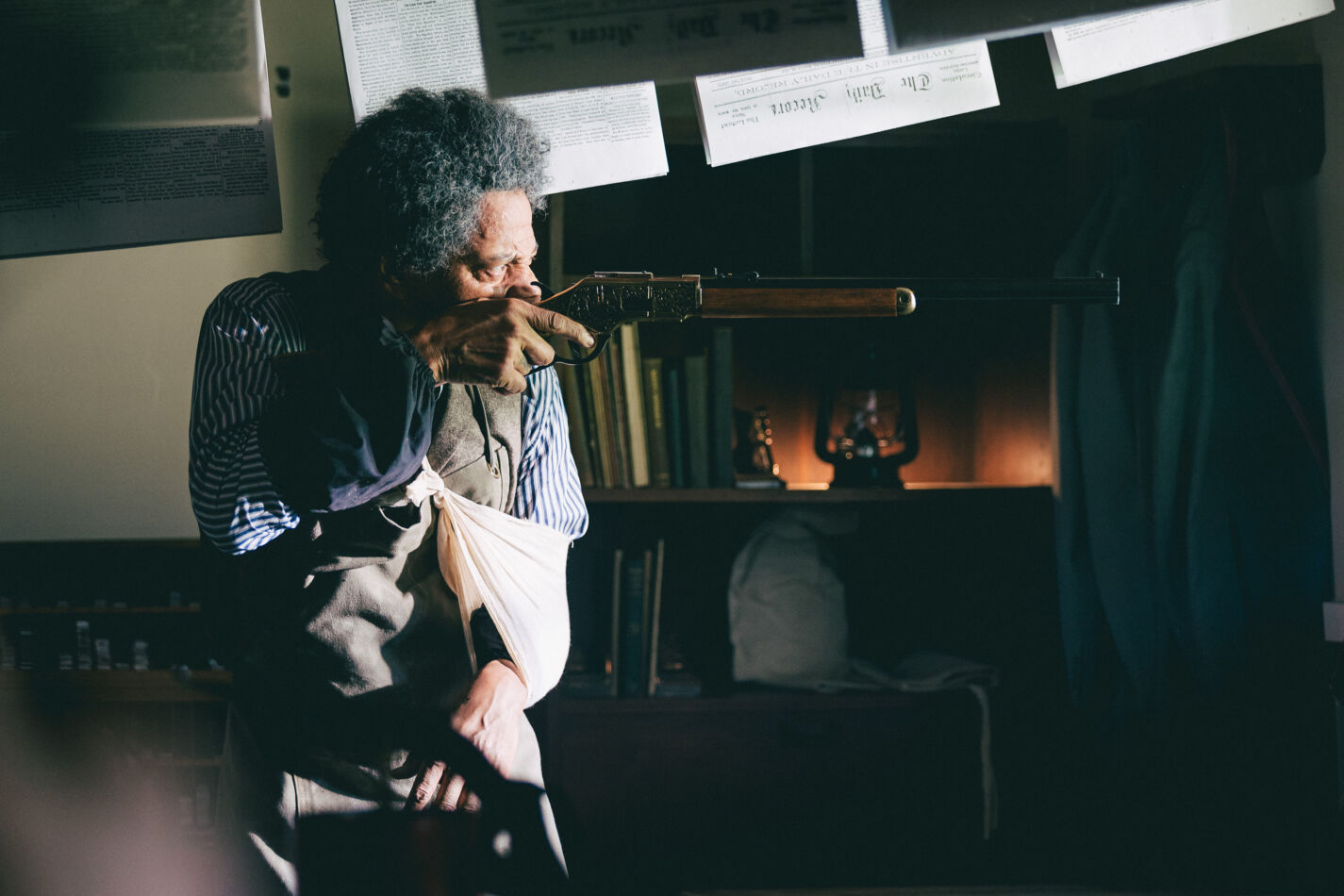‘In the Pines’ combats disinformation in telling of NC’s darkest tale
Published November 16, 2023
(Editor's note: This was first published in Carolina Journal, November 10, 2023. Greg de Deugd is the creative director at the John Locke Foundation. He produced the award-winning short film In the Pines.)
Today marks the 125th anniversary of the 1898 Wilmington Coup, the only coup d’etat to occur on United States soil. Also referred to as the Wilmington Massacre, it is a dark moment in North Carolina history. While producing the award-winning short film “In the Pines,” a drama set in the days leading up to the violent coup, I learned a great deal about the events, the lives of those it impacted, and the lasting imprint it left on North Carolina.
The 1898 coup was the culmination of a months-long campaign by the Democratic Party to retake control of the North Carolina government. Spearheaded by the eventual North Carolina Gov. Charles Aycock, the effort was known, in their own description, as their “white supremacy campaign.”
In coordination with the Raleigh News & Observer (run by wealthy media mogul Josephus Daniels) and a network of other local papers across the state, the Democrats set about to divide an alliance of black North Carolinians, Republicans, and Populists. Two years earlier, in 1896, this alliance had wrested political control from the Democrats for the first time since Reconstruction. But the Democrats desperately wanted power back.
Their plan was to fill the pages of almost every newspaper with stories of black crime and anti-black propaganda and tour the state with the most experienced orators of the day, delivering speeches aimed at catalyzing race hate. In addition to the propaganda campaign, which was abetted by their near-total control of the mass media, the Democrats enlisted their own paramilitary group: the Redshirts.

The Redshirts brought real violence to the doorsteps of African Americans and anyone else who spoke up for the truth of what was happening during that summer of hate. The Republican governor of North Carolina was so fearful of the Redshirts’ violent tactics that he made the journey from Wilmington to Raleigh in the baggage hold of a passenger train to avoid encountering them. They patrolled election sites on Nov. 8, 1898, with the express purpose of depressing voter turnout by Republicans and blacks across the state.
Sadly, their hate-filled campaign was a resounding success; the Democrats won and took nearly every statewide office, going on to maintain control of North Carolina for over 100 years. The leaders of the white supremacy campaign ascended to positions of great power within state and federal government. Charles Aycock not only became governor of North Carolina, but he also became the architect of what would become our current public school system. Josephus Daniels became secretary of the United States Navy under Woodrow Wilson and ambassador to Mexico under FDR. The party even honored Aycock with an annual fundraising gala in his name up until 2021.
Even after winning state control in the 1898 election, Democrats were unsatisfied. They also had their sights set on control of the municipal government of Wilmington, a vibrant, multiracial port city rich with natural resources and teeming with dynamic entrepreneurs of all races. The Democrats had no patience to wait for municipal elections. They seized their moment.
Leveraging the raw violence fueled by their propaganda, the Redshirt army took the city of Wilmington by force on Nov. 10. They burned down the Daily Record, the only black daily newspaper in the nation, and forced most of the city’s black residents to seek refuge in the swamps. Wilmington was on a trajectory of astounding financial success, a shining example of the economic benefits of pluralism and cooperation. But its diversity and dynamism were brutally cut short for the sake of political power.

With this political dynamic forming the backdrop of our film, I certainly anticipated negative press from the political left. I don’t personally believe that today’s Democrats are necessarily responsible for the actions of Democrats of the past. But the only honest way to tell the story of 1898 is by naming the people and groups involved. The film speaks very frankly about the history, and that could be one reason we were attacked in the press.
The Charlotte Observer, even before we shot any footage, had already released a smear article on the film. Likely based on casting notices and ads, they invented their own storyline of what our movie was about and attacked that. They seemed oblivious to the irony of the Charlotte Observer, a sister paper of The News & Observer, trying to smear a film that dramatizes the racist past of our state’s oldest newspaper empire.
The Wilmington Star News, a participant in the propaganda campaign of 1898, also editorialized the purpose and content of our film without having seen it.
Thankfully, those who have seen the film know the truth: ”In The Pines” tells a great story, and the John Locke Foundation has produced a quality film that has been met with enthusiasm and vastly more accolades than criticism. It has been accepted into dozens of film festivals, winning numerous awards for cinematography, performances, art direction, costumes, makeup, writing, and directing. These awards have come from festivals in North Carolina, the US, and around the world. I’ve spoken about the film in Texas, Tennessee, and will present it in New York next week. It was lauded as far away as Spain, Italy, and Argentina. Viewers consistently ask me in Q&A panels about plans for a feature or a series everywhere it screens.
I am so immensely proud of the talented cast and crew, who came together from around the world, united in the craft of filmmaking to tell a simple but powerful story. They deserve every award they have received, and all of them are ready and able to get started crafting a feature-length film or mini-series.
Audiences always want to see more after they watch “In the Pines” because it does what great drama should do: it takes us on a journey and gives voice to what it means to be human. Historical dramas like “In the Pines” can help us understand our past: the good, the bad, and the ugly. As dramatic art, they can help us cycle through powerful emotions. And through this cathartic experience, they build empathy and understanding. We can leave the theater and go confidently back into the world to build a brighter future together. Anyone who stands in the way of this could only be described as an enemy of progress.
If you’re interested in hosting a screening of In The Pines or would like to learn more about the film, please email info@johnlocke.org or visit InThePinesFilm.com.







